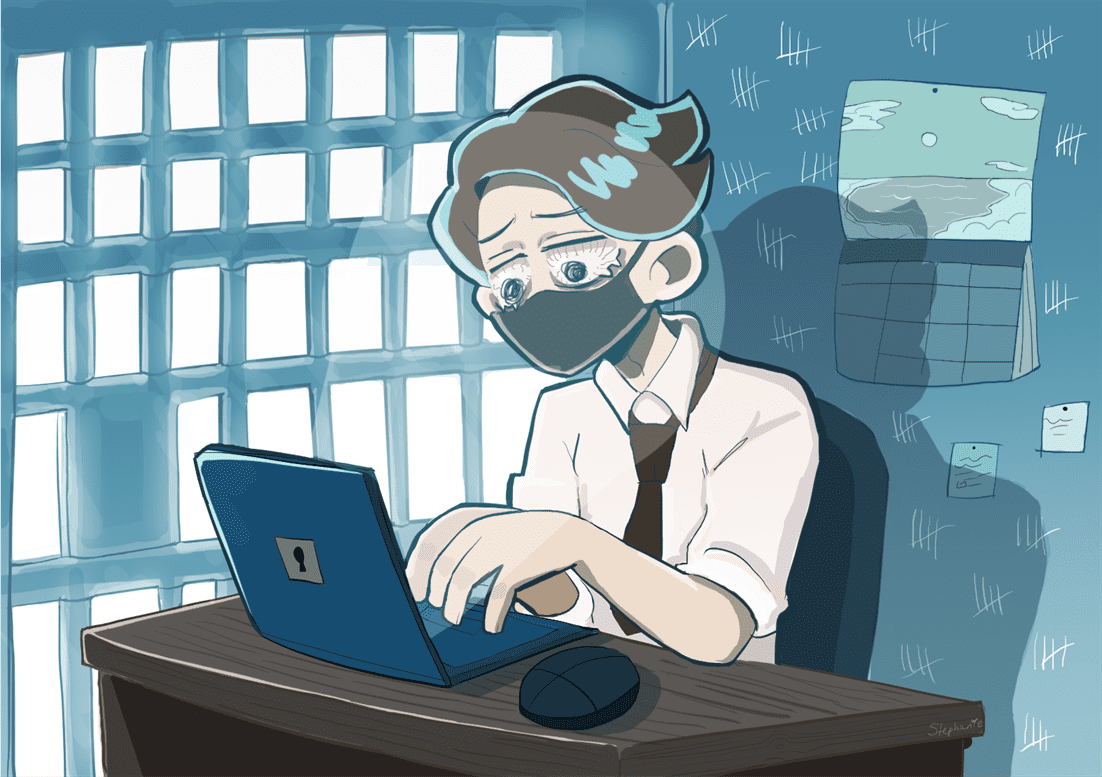#FocusDisruption is a collaboration of all the media outlets within Montclair State’s School of Communication and Media. Our goal is to report stories that highlight the effects or disruption of the last two years and the solutions that have come out of it. All aspects of day-to-day life have been altered but we will be primarily focusing on how mental health, education and the workplace have changed.
In the early stages of the coronavirus (COVID-19) pandemic, many offices made a snap transition to remote work, which was a relatively uncommon modality before then. Now, according to data scientists at Ladders, 25% of all professional jobs in North America will be remote by the end of 2022, and there is no end in sight.
Don’t fret, this shift has proven quite beneficial to many in the workforce. Given the total upheaval of society as we know it and the rising price of every necessity imaginable, it’s been a relief to those who once had to commute five days a week.
However, just as with every major change, especially those wrought by COVID-19, there is a massive downside, one with borderline dystopian tones. The “9-to-5” aspect of an office job was based solely on the hours physically spent in the workplace, a distinction that has now become nebulous or fluid at best.
Well, since people are home all the time, that means they have more time to work, right? Wrong. Such a false assumption is just one sinister result of the blurred boundaries between the home and the workplace.
Companies now expect workers to be available at all hours of the day, able to drop whatever it is they’re doing and run to their computer to fulfill an allegedly urgent task. To make matters worse, some employers see nothing wrong with texting or calling their employees off the clock, even on holidays.
This is probably because it’s now expected of many workers to be on-call, even if their job doesn’t require it, and we as a society cannot afford to normalize this.
If it wasn’t already clear that there is no room for humanity under capitalism, it has become intensely apparent to those transitioning to remote work. People with children, spouses, pets and responsibilities are expected to sit on Zoom for hours with no interruptions. Workers have even been fired for having to step away from their computers to attend to their children.
Having no in-person contact with coworkers and bosses might mean the end of being forced to nod and smile at endless pictures of someone else’s moderately ugly baby. But as we all know from venturing into any comment section, virtual connections often enable intense cruelty and depersonalization.
Could this degree of separation exacerbate toxic workplace environments, too?
Another consequence of remote work relates to the culture of immediacy that modern technology has contributed to. Think about how we’re all conditioned to immediately feel the irritation of having to wait for anything these days, whether it’s a package, a meal or a response to a text. Well, most companies expect a near-immediate reply to emails, and anything over a day is often considered rude.
The workplace often demands the utmost productivity coupled with the expectation of constant availability. This is a recipe for burnout. It is clearly not only an unrealistic system we’ve created but an unsustainable one.
Last year, Portugal passed a law prohibiting bosses from contacting their employees outside of office hours. Since Portugal is already remarkably progressive and a much smaller country than the United States, it might be wishful thinking to want that level of protection for remote workers here in the good old USA.
But there are some ways to enforce those much-needed boundaries without abandoning your old life and leaving for the Azores, as nice as that sounds.
Having an area in your home solely reserved for work not only boosts productivity but also trains your mind to detach from work whenever you are not in that space. This is why bringing your laptop to bed to work on an essay often leads to distractions or lack of motivation; you associate your bed and bedroom with relaxation and rest, so focusing on research or drafting a paper doesn’t come as easily.
Conversely, your bedroom is now a place where work is expected, so you may find it harder to wind down at night. If possible, restrict your remote work to a place in your home you don’t associate with rest or relaxation.
I personally use my dining room table when I’m not eating there because it’s far away from my bedroom and is usually free of distractions. Investing in noise-canceling headphones can be a real lifesaver if your home is noisy.
When working a remote job or looking for one, make sure there are clearly outlined hours and days expected of employees, and be wary of any job that expects “open availability.” In some cases, that means you make your own hours, but more often than not, it’s just another way of saying you’ll work whenever they want you to.
There are plenty of remote jobs out there for all fields and levels of work experience, so don’t be afraid to leave one that is draining you. No job is worth your sanity.
Besides, these companies need to learn that this generation of workers knows their worth, especially in the virtual realm.



